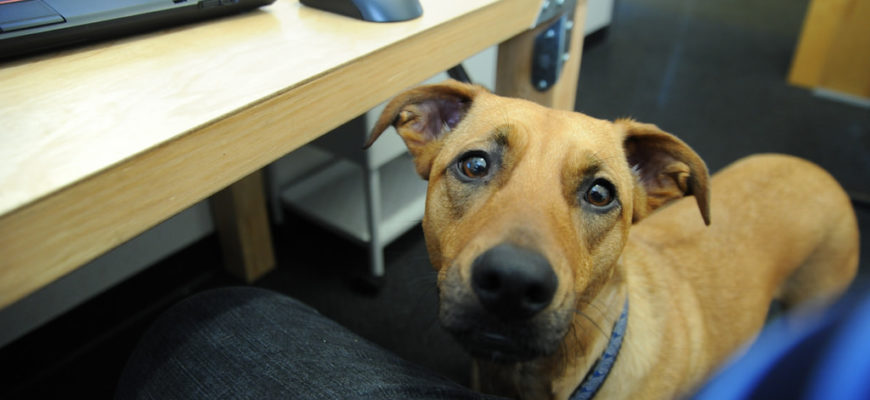Is your dog actually loving the current stay-at-home order? Pets may be the one part of the population who are not minding this new routine, as now they have you all to themselves all day long! While you are hopefully enjoying all this extra time with your pets, you may have concerns about how your puppy or dog is going to adjust when things start to return to normal and we are leaving during the day again. Now is the time to start working on preparing your dog for this eventual change.
First, set up a special area where your dog is going to be when you leave the house. This could be a crate, an exercise pen, or a specific part of the house. Begin getting your dog accustomed to entertaining themselves in this area even when you are present. Give them a chew item or puzzle toy, and let them enjoy it while you remove attention for a period of time. At this stage, you can remain in the same room.
Next, begin leaving the room for short durations of time while your dog plays with puzzle toys and/or rests. Gradually increase the amount of time you are separate.
When you are able to leave them alone in a room for 20-30 minutes without them being concerned, then start to make short trips outside the house. Step outside on the porch, take a short phone call in the car, go for a little walk around the block, and then return. If you can monitor your dog via video while you are away, that will be great, otherwise, look for any evidence of distress when you return (destructiveness, reports of barking, excessive drooling, housetraining accidents, etc.).
If your dog is NOT showing any signs of distress, start to make those absences a bit longer (while still respecting stay-at-home restrictions).
If your dog does show signs of being distressed at ANY point in this process, return to them, and then go back to an easier stage during the next training session.
If your dog does have a history of separation anxiety, this is actually the perfect time to work on it. Many certified professional trainers are still able to do video consults during this time, so resources are still available if you need some help modifying an existing problem. Reach out to the HSHV Behavior Help Line for more resources or tips: 734-662-5545.








